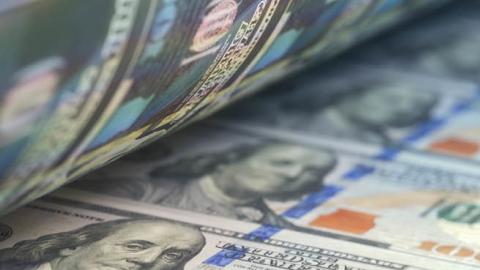America faces a serious, pervasive and anonymous threat to national security. A top Pentagon official recently called it the “biggest concern [and] weakest link” in U.S. defense procurement. U.S. law enforcement and intelligence agencies are routinely stumped by it.
And in the Treasury Department’s most recent strategy for combating terrorist and other illicit financing, it is identified as the top vulnerability in the U.S. financial system and an immediate priority for action.
What is this mysterious new threat? In fact, it is a basic money laundering loophole that we have known about for decades: The ability to own and control U.S. shell companies without having to disclose their true ownership.
Drug cartels, terrorists, kleptocrats and everyday fraudsters have long exploited this loophole to facilitate activities that undermine America’s security and prosperity. For example, U.S. shell companies are used for money laundering in transnational corruption cases more often than those of any other country — including notorious tax havens such as Switzerland or the Cayman Islands.
Indeed, experts have sandwiched the United States between those two countries as one of the worst financial secrecy jurisdictions in the world. Yet, in all 50 U.S. states, more personal information is required to obtain a library card than to create a shell company.
But the problem assumes a new urgency as U.S. policymakers contemplate a protracted struggle with China. Indeed, it is astonishing that this vulnerability has yet to be addressed in that context, as shell companies routinely play a key role in facilitating espionage, intellectual property theft, cyberattacks, and sanctions evasion by CCP officials and their proxies.
Opaque corporate networks also propel the broader wave of crime and corruption emanating from China as a byproduct of Communist misrule, including the illegal opioid trade, human trafficking and counterfeit goods. And China’s most prominent political families hypocritically rely on shell companies to conceal their vast private wealth overseas.
This is clearly a global problem with strategic implications, but the first step is a modest domestic technocratic reform. The introduction of a U.S. directory of corporate “beneficial ownership” would simply require the owners of U.S. shell companies to disclose who really controls the legal entities being used to move billions of dollars through and within America’s borders each year.
It goes without saying that, without robust verification procedures — which run the risk of burdening innocent business owners — criminals will simply submit false or misleading information. But this forces a choice on the lawyers and incorporation agents they use to set up opaque corporate networks, who are currently not required to ask any awkward questions about their clients’ identities.
And as any law enforcement agent will tell you, the presence of inaccurate information can itself be a powerful clue in the context of broader investigations.
Yet, the benefits to domestic law enforcement are barely half the story. By joining democratic allies such as the United Kingdom, European Union and New Zealand in tackling shell company abuse, the United States would assume international leadership on setting a new global standard that undermines the CCP’s worldwide assault on the rule of law.
This matters because the United States is the overseer of the global reserve currency: If you want to be able to access U.S. dollars, you have to play by its rules. Even an imperfect gesture towards tackling shell company abuse would empower officials from the State, Justice and Treasury Departments to pressure and, if necessary, shut down the unscrupulous jurisdictions that act as conduits for illicit financial flows from China, Russia, Iran, North Korea, Venezuela and other authoritarian adversaries.
This includes the Belt and Road Initiative, which became a conduit for kleptocracy across Eurasia as local elites were seduced by bribes and unprecedented opportunities to embezzle funds intended for public works. Unless America acts to roll back the opaque corporate networks underpinning this kind of transnational corruption, the situation will only worsen as the CCP exploits new opportunities to expand its influence throughout the developing world in the wake of the COVID-19 pandemic.
Though Congress is currently considering bipartisan, widely-supported legislation (the magnificently named “ILLICIT CASH” Act) to set this process in motion, time is now running very short. And failure to act means yet another year in which America’s adversaries are free to abuse the U.S. financial system and spread corruption worldwide in total anonymity.
The annual National Defense Authorization Act — currently on the floor of the Senate — offers perhaps the best opportunity to address this critical national security threat before the end of the year.
It seems ridiculous, at first glance, to compare this minor technocratic reform to the military posturing, technology races and trade wars that characterize the U.S.-China rivalry. And yet, as the CCP seeks to erode rule of law and remake global institutions amenable to its own interests, it is financial transparency that can become the most powerful weapon in the economic arsenal of democratic, capitalist societies worldwide.
Read in Washington Times















